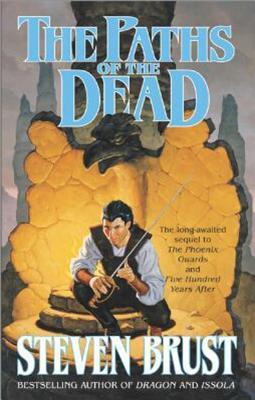What do you think?
Rate this book


400 pages, Paperback
First published January 1, 2002
"Ah, does Your Lordship wish me to explain?"
"Yes, that is it exactly. I wish you to explain."
"I will then."
"I am listening."
"I mean that our friend," here she indicated the necromancer, "treats as matters of simple practicality what others consider as most abstruse theory."
"I do not understand what you do the honor to tell me, Sethra."
"Well, then, Sethra, permit me to explain."
"I will be delighted if you would do so."
"I am about to."
"I am listening."
The Enchantress then turned to the necromancer and said, "Have you observed that I am undead?"
The necromancer shrugged as if it was of no importance and said, "Of course."
"Well, what then is your opinion of death?"
"It is the limitation of one's ability to reach certain phases of reality."
"And then?"
"It can sometimes be inconvenient."